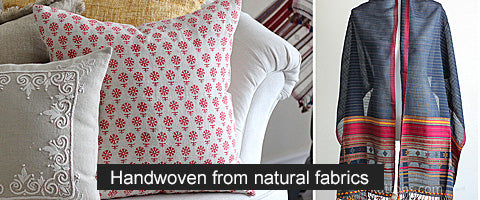Cotton FAQs

1. What is Cotton?
Cotton is a natural fiber made from the seeds of the cotton plant. It is known for its softness, breathability, and versatility, making it one of the most widely used fabrics in the world.
2. Why is Cotton a Popular Choice for Clothing?
Cotton is soft, comfortable, breathable, and hypoallergenic, making it ideal for clothing. It is also easy to care for and can be machine-washed, making it a practical fabric for everyday wear.
3. How Should I Care for Cotton Clothing?
Cotton clothing can typically be machine-washed in warm or cold water. Tumble dry on low heat or air dry to prevent shrinkage. Iron cotton if needed, especially for more structured garments.
4. Does Cotton Shrink in the Wash?
Yes, cotton can shrink when exposed to high heat during washing and drying. To prevent this, use cold water and low heat when washing and drying cotton garments.
5. Is Cotton a Breathable Fabric?
Yes, cotton is highly breathable, which allows air to circulate and keeps you cool. It is especially well-suited for warm climates and summer clothing.
6. What is the Difference Between Regular Cotton and Organic Cotton?
Organic cotton is grown without the use of synthetic pesticides, herbicides, or fertilizers. It is a more environmentally friendly option than conventional cotton and is often softer and more durable.
7. How Does Cotton Compare to Linen?
Both cotton and linen are natural fibers, but linen is more breathable and durable, while cotton is softer and less prone to wrinkling. Cotton is typically more affordable and versatile than linen.
8. Is Cotton Good for Sensitive Skin?
Yes, cotton is a natural, hypoallergenic fiber that is gentle on the skin. It is often recommended for people with sensitive skin or allergies.
9. What Are the Different Types of Cotton?
There are several types of cotton, including Pima, Egyptian, Supima, Suvin and regular cotton. Pima and Egyptian cotton are known for their superior softness and strength, making them ideal for high-quality clothing.
10. How Long Does Cotton Last?
Cotton is a durable fabric that can last for years with proper care. However, over time, cotton can wear down, especially if exposed to high heat or harsh washing methods.
11. Does Cotton Wrinkle Easily?
Yes, cotton tends to wrinkle, especially after washing. You can iron or steam cotton garments to remove wrinkles, or opt for wrinkle-resistant cotton blends.
12. Is Cotton Sustainable?
Cotton can be sustainable, particularly organic cotton, which uses less water and fewer chemicals. However, conventional cotton farming can be resource-intensive, so choosing responsibly sourced cotton is important for sustainability.
13. Can I Wear Cotton Year-Round?
Yes, cotton is versatile and can be worn year-round. In warmer months, it keeps you cool and breathable, while in cooler weather, it can be layered with other fabrics for added warmth.
14. How is Cotton Dyed?
Cotton takes dye well and is available in a wide range of colors and patterns. However, it is recommended to wash brightly colored cotton items separately to avoid color transfer.
15. Is Cotton Stretchy?
Pure cotton has little to no natural stretch, but it can be blended with other fibers like elastane or spandex to add flexibility and stretch to the fabric.
16. What Types of Clothing Are Made from Cotton?
Cotton is used to make a wide range of clothing, including t-shirts, shirts, pants, dresses, and sleepwear. Its softness and breathability make it ideal for both casual and formal wear.
17. Does Cotton Get Softer Over Time?
Yes, cotton typically becomes softer the more it is washed, making it more comfortable to wear over time.
18. What is the Difference Between Pima Cotton and Regular Cotton?
Pima cotton is a higher-end type of cotton with longer fibers, making it softer, more durable, and more resistant to pilling than regular cotton.
19. Is Cotton Biodegradable?
Yes, cotton is a natural fiber and is fully biodegradable, making it an eco-friendly choice compared to synthetic fabrics.
20. Does Cotton Absorb Moisture?
Yes, cotton is very absorbent, which makes it ideal for towels, t-shirts, and other clothing where moisture-wicking is important. However, it can also retain moisture and feel heavy if it gets too wet.
21. How Does Cotton Hold Up to Repeated Washing?
Cotton is durable and can withstand repeated washing. However, it’s best to avoid high heat and strong detergents, which can cause it to wear out more quickly.
22. Is Cotton Easy to Iron?
Yes, cotton is easy to iron, especially if it is slightly damp. However, if you prefer a wrinkle-free look, you may need to iron cotton regularly after washing.
23. What is a Cotton Blend?
Cotton blends are fabrics that mix cotton with other fibers like polyester, rayon, or elastane. Blending cotton with other materials can improve its strength, durability, and elasticity.
24. What Should I Look for When Buying Cotton Clothing?
Look for high-quality cotton with a smooth finish and minimal pilling. Check the weight of the fabric to ensure it’s appropriate for your climate and needs, and opt for organic cotton when possible for sustainability.
25. Why is Egyptian Cotton Considered High Quality?
Egyptian cotton is prized for its long fibers, which make the fabric softer, stronger, and more durable. It is considered one of the best types of cotton for luxury clothing and bedding.
26. Does Cotton Hold Its Shape?
Pure cotton can lose its shape over time, especially if stretched. However, cotton blended with elastane or other fibers is more likely to hold its shape after wearing and washing.
27. How Can I Tell If Cotton is High Quality?
High-quality cotton has longer fibers, is soft to the touch, and will feel substantial without being too heavy. It should also resist pilling and retain its shape after washing.

